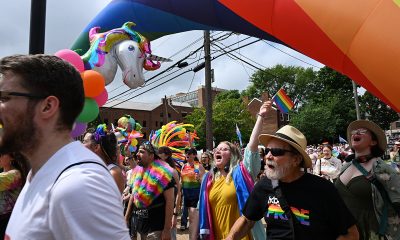a&e features
Bars brace for COVID winter
Local business owners working to adapt to cooler weather
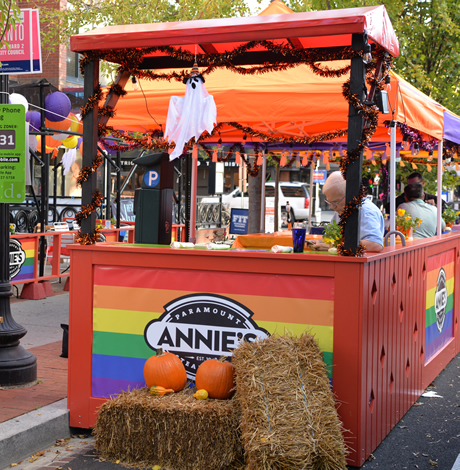
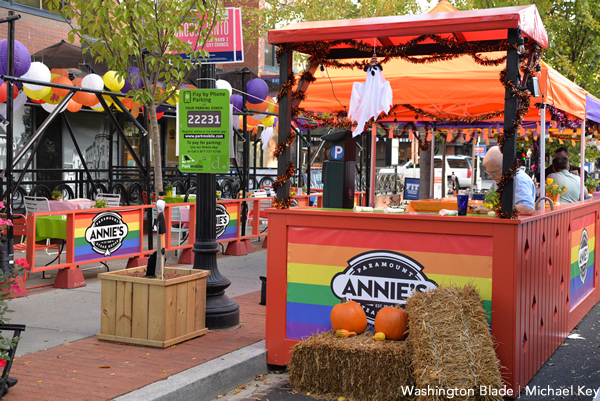
For Ed Bailey, co-owner of Number Nine and Trade, one emotion has persisted through the summer months and into the fall: anxiety.
Number Nine and Trade, both queer bars near Logan Circle, were forced to close starting in March when the coronavirus pandemic first hit the city. They reopened several weeks later for takeout and then several weeks after that for limited seating, Bailey said.
“We are operating at such a diminished capacity that we’re toeing the line between being able to support our existence and not,” he said in an interview. “We are just right there.”
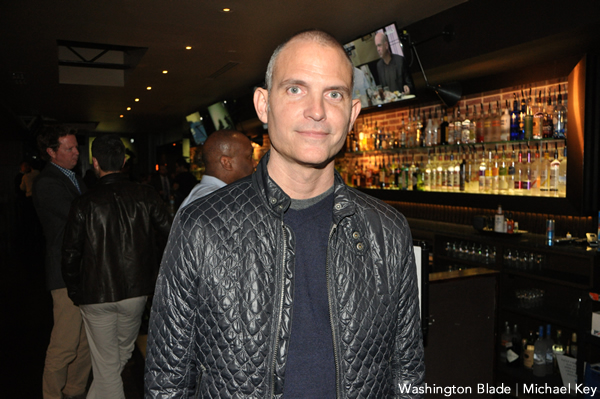
For other LGBTQ bars across D.C., the story looks remarkably similar. Outdoor dining has proved to be a lifeline for those restaurants but with winter looming, Bailey and other bar owners are scrambling to find creative solutions to combat the cold.
Bailey said he’s already spent hundreds of dollars on heat lamps to place at each outdoor table at Trade and additional television screens and projectors for their outdoor spaces.
Howard Hicks, general manager of the Green Lantern, said they are looking into buying tents and heating lamps for their improvised patio area. The outdoor seating has been helpful in drawing customers who still aren’t comfortable dining indoors, he said.
But even if they have the heaters and tents, Hicks said he’s concerned that people just won’t come out at all during colder months.
“I’m worried that they’ll be very concerned about being in a place with heat and I’m worried that the number of cases will start going up again once everyone’s not able to go outside,” he said. “We’re concerned about the things that we’re not able to really control, but yet at the same time we are striving to make the space we have as comfortable as we can make it.”
Managers at Green Lantern have already applied for the Streatery Winter Ready Grant program, announced by Mayor Muriel Bowser on Sept. 21. Each grant recipient will receive $6,000 to winterize their patios and outdoor dining areas.
The city has devoted $4 million to the fund and applications will be approved on a rolling basis until the money runs out, according to a statement from the mayor’s office.
“The number one priority for restaurateurs has been the combined safety of their employees and customers,” Kathy Hollinger, president of the Restaurant Association of Metropolitan Washington, said in the statement. “They know that everyone’s comfort level is slightly different when it comes to supporting their local restaurants, and this additional relief will help businesses offset costs and extend outdoor service as we work our way through colder months.”
Bailey said he is appreciative of the efforts made by the city to assist small businesses but still accepts that the coming months will not be easy.
“We have every intention of making it through all of this and we’re smart enough to be able to make some intelligent decisions to kind of bolster the spaces for the colder weather,” he said. “I’m trying to honestly be as optimistic as I can but I also feel like I’m being very pragmatic to understand that these are very difficult situations that we’re facing. And it looks like we’re going to be facing them through the whole next year.”
Doug Schantz, owner of Nellie’s Sports Bar on U Street, said they have some seating on the roof deck but have been able to keep most of their clientele inside because of their huge windows, which open to allow ventilation.
Once the weather turns cold, Schantz said the strategy will be to turn the heat up inside as much as they can while still keeping the windows open. He has also applied for the city grant to winterize Nellie’s.
Schantz said he ranks his concern for his business at a five out of 10.
“I know that we’re going to get out of this, I just think it’s gonna be a very rough winter,” he said. “We just have to figure out what our finances are and continue to keep everybody safe. There’s always the looming threat, no matter what you do every day, no matter what all the challenges are. This is also a pandemic that’s very serious and you’ve got to keep your employees and your customers safe.”
For Dave Perruzza, owner of Pitchers in Adams Morgan, the $6,000 grant from the city isn’t nearly enough to cover his expenses.
“Six thousand dollars is like nothing right now. Compared to the bills we have that have been racking up, $6,000 won’t put a dent in anything,” he said. “But I’ll take whatever assistance I can get. Honestly we’re hurting so I have no shame in asking for the money.”
For winter, Perruzza said they’re going to have to rely on takeout orders and using the bit of indoor space that they can.
“I’m very concerned,” he said of his bar. “We just don’t make enough money to sustain a business right now.”
He has been attempting to convince the city government to allow drag shows once again because he said it could be their lifeline through the winter.
“Gay bars are not gay bars without drag shows. It’s part of our culture,” Perruzza said. “I feel like if we can get that to happen in the bars, we can survive with our inside seating and a little bit even with our outside seating.”
Perruzza said he’s been extremely frustrated that queer bars aren’t allowed to host live events in D.C. because restaurants in surrounding states are.
“In my opinion, it doesn’t make it a level playing field for businesses in D.C.,” he said. “I get why the mayor is doing it, but she’s got to give way on certain things that other cities are doing, because D.C. people are just going to Virginia and Maryland to do this stuff.”
Bowser released a pilot plan on Sept. 25 to reintroduce live entertainment at only six specific venues, which can have no more than 50 people at each event. According to a statement from the mayor, the program is an opportunity to restart live entertainment in a controlled environment where they can learn what protocols work best and then apply it to future guidance.
At Freddie’s Beach Bar in Arlington, drag queens have been taking to the stage for the past three weeks. Owner Freddie Lutz said the drag events have filled up the bar and breathed life back into the space.
“We’re taking all the precautions we can so I’m not too worried about [the safety of the shows],” he said. “And they’ve all been very popular which is really encouraging.”
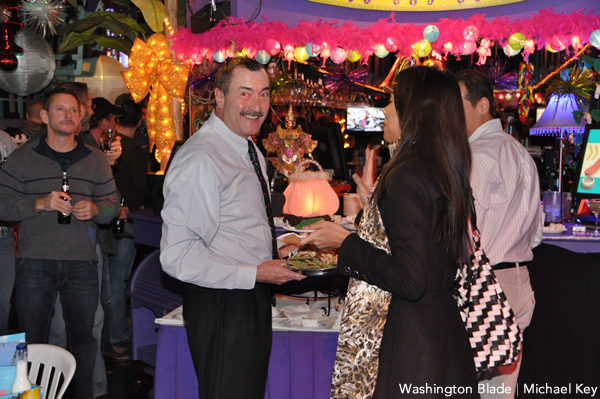
For bar owners like Bailey, Schantz and Perruzza, there’s a pervading sense of uncertainty and unpredictability. It’s almost impossible to plan around a public health crisis that changes by the day, said Bailey.
“There kind of is no future that you can plan on so you have to just live in the moment and work to get your day together, maybe your week. But beyond that, everything’s changing,” he said.
For the LGBTQ community, Bailey said their bars and clubs serve an entirely different purpose than other restaurants.
“For some people, going to a bar is just going to a bar. But for many LGBTQ people, you’re not able to be who you are at work, or at school, or even at home and so often, LGBTQ businesses are the refuge for people,” he said.
For some bars, like gay club Ziegfeld’s-Secrets, the toll of the virus has closed them for good. As winter approaches with no quick end of the pandemic in sight, Bailey said he has started to worry about the wellbeing of the LGBTQ community in the city.
“The community will always find a way but the bars have always been kind of at the center,” he said. “It’s where we congregate and discuss and celebrate and commiserate. We don’t have a whole lot of other spaces to do that.”
a&e features
Visit Cambridge, a ‘beautiful secret’ on Maryland’s Eastern Shore
New organization promotes town’s welcoming vibe, LGBTQ inclusion

CAMBRIDGE, Md. — Driving through this scenic, historic town on Maryland’s Eastern Shore, you’ll be charmed by streets lined with unique shops, restaurants, and beautifully restored Victorian homes. You’ll also be struck by the number of LGBTQ Pride flags flying throughout the town.
The flags are a reassuring signal that everyone is welcome here, despite the town’s location in ruby red Dorchester County, which voted for Donald Trump over Kamala Harris by a lopsided margin. But don’t let that deter you from visiting. A new organization, Proudly Cambridge, is holding its debut Pride event this weekend, touting the town’s welcoming, inclusive culture.
“We stumbled on a beautiful secret and we wanted to help get the word out,” said James Lumalcuri of the effort to create Proudly Cambridge.
The organization celebrates diversity, enhances public spaces, and seeks to uplift all that Cambridge has to share, according to its mission statement, under the tagline “You Belong Here.”
The group has so far held informal movie nights and a picnic and garden party; the launch party is June 28 at the Cambridge Yacht Club, which will feature a Pride celebration and tea dance. The event’s 75 tickets sold out quickly and proceeds benefit DoCo Pride.
“Tickets went faster than we imagined and we’re bummed we can’t welcome everyone who wanted to come,” Lumalcuri said, adding that organizers plan to make “Cheers on the Choptank” an annual event with added capacity next year.
One of the group’s first projects was to distribute free Pride flags to anyone who requested one and the result is a visually striking display of a large number of flags flying all over town. Up next: Proudly Cambridge plans to roll out a program offering affirming businesses rainbow crab stickers to show their inclusiveness and LGBTQ support. The group also wants to engage with potential visitors and homebuyers.
“We want to spread the word outside of Cambridge — in D.C. and Baltimore — who don’t know about Cambridge,” Lumalcuri said. “We want them to come and know we are a safe haven. You can exist here and feel comfortable and supported by neighbors in a way that we didn’t anticipate when we moved here.”

Lumalcuri, 53, a federal government employee, and his husband, Lou Cardenas, 62, a Realtor, purchased a Victorian house in Cambridge in 2021 and embarked on an extensive renovation. The couple also owns a home in Adams Morgan in D.C.
“We saw the opportunity here and wanted to share it with others,” Cardenas said. “There’s lots of housing inventory in the $300-400,000 range … we’re not here to gentrify people out of town because a lot of these homes are just empty and need to be fixed up and we’re happy to be a part of that.”
Lumalcuri was talking with friends one Sunday last year at the gazebo (affectionately known as the “gayzebo” by locals) at the Yacht Club and the idea for Proudly Cambridge was born. The founding board members are Lumalcuri, Corey van Vlymen, Brian Orjuela, Lauren Mross, and Caleb Holland. The group is currently working toward forming a 501(c)3.
“We need visibility and support for those who need it,” Mross said. “We started making lists of what we wanted to do and the five of us ran with it. We started meeting weekly and solidified what we wanted to do.”
Mross, 50, a brand strategist and web designer, moved to Cambridge from Atlanta with her wife three years ago. They knew they wanted to be near the water and farther north and began researching their options when they discovered Cambridge.
“I had not heard of Cambridge but the location seemed perfect,” she said. “I pointed on a map and said this is where we’re going to move.”
The couple packed up, bought a camper trailer and parked it in different campsites but kept coming back to Cambridge.
“I didn’t know how right it was until we moved here,” she said. “It’s the most welcoming place … there’s an energy vortex here – how did so many cool, progressive people end up in one place?”
Corey van Vlymen and his husband live in D.C. and were looking for a second home. They considered Lost River, W.Va., but decided they preferred to be on the water.
“We looked at a map on both sides of the bay and came to Cambridge on a Saturday and bought a house that day,” said van Vlymen, 39, a senior scientist at Booz Allen Hamilton. They’ve owned in Cambridge for two years.
They were drawn to Cambridge due to its location on the water, the affordable housing inventory, and its proximity to D.C.; it’s about an hour and 20 minutes away.
Now, through the work of Proudly Cambridge, they hope to highlight the town’s many attributes to residents and visitors alike.
“Something we all agree on is there’s a perception problem for Cambridge and a lack of awareness,” van Vlymen said. “If you tell someone you’re going to Cambridge, chances are they think, ‘England or Massachusetts?’”
He cited the affordability and the opportunity to save older, historic homes as a big draw for buyers.
“It’s all about celebrating all the things that make Cambridge great,” Mross added. “Our monthly social events are joyful and celebratory.” A recent game night drew about 70 people.
She noted that the goal is not to gentrify the town and push longtime residents out, but to uplift all the people who are already there while welcoming new visitors and future residents.
They also noted that Proudly Cambridge does not seek to supplant existing Pride-focused organizations. Dorchester County Pride organizes countywide Pride events and Delmarva Pride was held in nearby Easton two weeks ago.
“We celebrate all diversity but are gay powered and gay led,” Mross noted.
To learn more about Proudly Cambridge, visit the group on Facebook and Instagram.
What to see and do
Cambridge, located 13 miles up the Choptank River from the Chesapeake Bay, has a population of roughly 15,000. It was settled in 1684 and named for the English university town in 1686. It is home to the Harriet Tubman Museum, mural, and monument. Its proximity to the Blackwater National Wildlife Refuge makes it a popular stop for birders, drawn to more than 27,000 acres of marshland dubbed “the Everglades of the north.”
The refuge is walkable, bikeable, and driveable, making it an accessible attraction for all. There are kayaking and biking tours through Blackwater Adventures (blackwateradventuresmd.com).
Back in town, take a stroll along the water and through historic downtown and admire the architecture. Take in the striking Harriet Tubman mural (424 Race St.). Shop in the many local boutiques, and don’t miss the gay-owned Shorelife Home and Gifts (421 Race St.), filled with stylish coastal décor items.
Stop for breakfast or lunch at Black Water Bakery (429 Race St.), which offers a full compliment of coffee drinks along with a build-your-own mimosa bar and a full menu of creative cocktails.
The Cambridge Yacht Club (1 Mill St.) is always bustling but you need to be a member to get in. Snapper’s on the water is temporarily closed for renovations. RaR Brewing (rarbrewing.com) is popular for craft beers served in an 80-year-old former pool hall and bowling alley. The menu offers burgers, wings, and other bar fare.
For dinner or wine, don’t miss the fantastic Vintage 414 (414 Race St.), which offers lunch, dinner, wine tasting events, specialty foods, and a large selection of wines. The homemade cheddar crackers, inventive flatbreads, and creative desserts (citrus olive oil cake, carrot cake trifle) were a hit on a recent visit.
Also nearby is Ava’s (305 High St.), a regional chain offering outstanding Italian dishes, pizzas, and more.
For something off the beaten path, visit Emily’s Produce (22143 Church Creek Rd.) for its nursery, produce, and prepared meals.
“Ten minutes into the sticks there’s a place called Emily’s Produce, where you can pay $5 and walk through a field and pick sunflowers, blueberries, you can feed the goats … and they have great food,” van Vlymen said.
As for accommodations, there’s the Hyatt Regency Chesapeake Bay (100 Heron Blvd. at Route 50), a resort complex with golf course, spa, and marina. Otherwise, check out Airbnb and VRBO for short-term rentals closer to downtown.
Its proximity to D.C. and Baltimore makes Cambridge an ideal weekend getaway. The large LGBTQ population is welcoming and they are happy to talk up their town and show you around.
“There’s a closeness among the neighbors that I wasn’t feeling in D.C.,” Lumalcuri said. “We look after each other.”
a&e features
James Baldwin bio shows how much of his life is revealed in his work
‘A Love Story’ is first major book on acclaimed author’s life in 30 years

‘Baldwin: A Love Story’
By Nicholas Boggs
c.2025, FSG
$35/704 pages
“Baldwin: A Love Story” is a sympathetic biography, the first major one in 30 years, of acclaimed Black gay writer James Baldwin. Drawing on Baldwin’s fiction, essays, and letters, Nicolas Boggs, a white writer who rediscovered and co-edited a new edition of a long-lost Baldwin book, explores Baldwin’s life and work through focusing on his lovers, mentors, and inspirations.
The book begins with a quick look at Baldwin’s childhood in Harlem, and his difficult relationship with his religious, angry stepfather. Baldwin’s experience with Orilla Miller, a white teacher who encouraged the boy’s writing and took him to plays and movies, even against his father’s wishes, helped shape his life and tempered his feelings toward white people. When Baldwin later joined a church and became a child preacher, though, he felt conflicted between academic success and religious demands, even denouncing Miller at one point. In a fascinating late essay, Baldwin also described his teenage sexual relationship with a mobster, who showed him off in public.
Baldwin’s romantic life was complicated, as he preferred men who were not outwardly gay. Indeed, many would marry women and have children while also involved with Baldwin. Still, they would often remain friends and enabled Baldwin’s work. Lucien Happersberger, who met Baldwin while both were living in Paris, sent him to a Swiss village, where he wrote his first novel, “Go Tell It on the Mountain,” as well as an essay, “Stranger in the Village,” about the oddness of being the first Black person many villagers had ever seen. Baldwin met Turkish actor Engin Cezzar in New York at the Actors’ Studio; Baldwin later spent time in Istanbul with Cezzar and his wife, finishing “Another Country” and directing a controversial play about Turkish prisoners that depicted sexuality and gender.
Baldwin collaborated with French artist Yoran Cazac on a children’s book, which later vanished. Boggs writes of his excitement about coming across this book while a student at Yale and how he later interviewed Cazac and his wife while also republishing the book. Baldwin also had many tumultuous sexual relationships with young men whom he tried to mentor and shape, most of which led to drama and despair.
The book carefully examines Baldwin’s development as a writer. “Go Tell It on the Mountain” draws heavily on his early life, giving subtle signs of the main character John’s sexuality, while “Giovanni’s Room” bravely and openly shows a homosexual relationship, highly controversial at the time. “If Beale Street Could Talk” features a woman as its main character and narrator, the first time Baldwin wrote fully through a woman’s perspective. His essays feel deeply personal, even if they do not reveal everything; Lucian is the unnamed visiting friend in one who the police briefly detained along with Baldwin. He found New York too distracting to write, spending his time there with friends and family or on business. He was close friends with modernist painter Beauford Delaney, also gay, who helped Baldwin see that a Black man could thrive as an artist. Delaney would later move to France, staying near Baldwin’s home.
An epilogue has Boggs writing about encountering Baldwin’s work as one of the few white students in a majority-Black school. It helpfully reminds us that Baldwin connects to all who feel different, no matter their race, sexuality, gender, or class. A well-written, easy-flowing biography, with many excerpts from Baldwin’s writing, it shows how much of his life is revealed in his work. Let’s hope it encourages reading the work, either again or for the first time.
a&e features
Looking back at 50 years of Pride in D.C
Washington Blade’s unique archives chronicle highs, lows of our movement
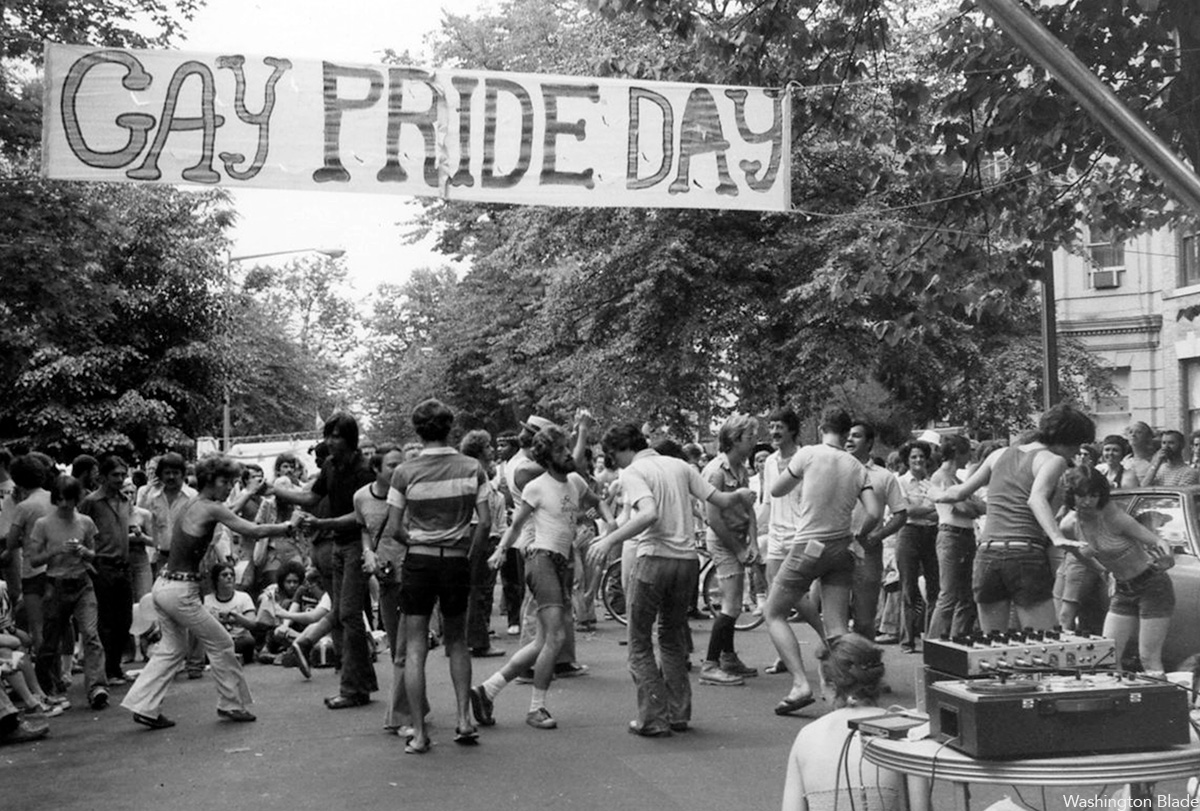
To celebrate the 50th anniversary of LGBTQ Pride in Washington, D.C., the Washington Blade team combed our archives and put together a glossy magazine showcasing five decades of celebrations in the city. Below is a sampling of images from the magazine but be sure to find a print copy starting this week.
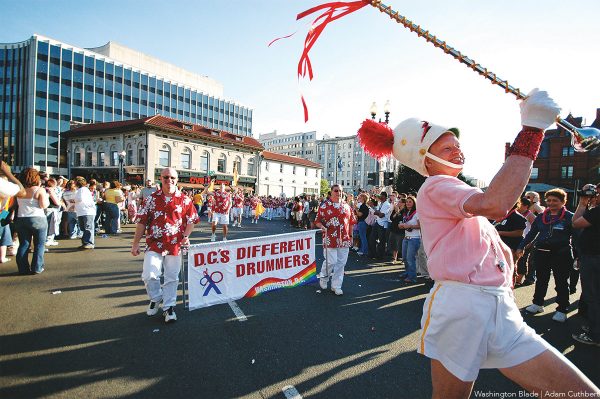
The magazine is being distributed now and is complimentary. You can find copies at LGBTQ bars and restaurants across the city. Or visit the Blade booth at the Pride festival on June 7 and 8 where we will distribute copies.
Thank you to our advertisers and sponsors, whose support has enabled us to distribute the magazine free of charge. And thanks to our dedicated team at the Blade, especially Photo Editor Michael Key, who spent many hours searching the archives for the best images, many of which are unique to the Blade and cannot be found elsewhere. And thanks to our dynamic production team of Meaghan Juba, who designed the magazine, and Phil Rockstroh who managed the process. Stephen Rutgers and Brian Pitts handled sales and marketing and staff writers Lou Chibbaro Jr., Christopher Kane, Michael K. Lavers, Joe Reberkenny along with freelancer and former Blade staffer Joey DiGuglielmo wrote the essays.
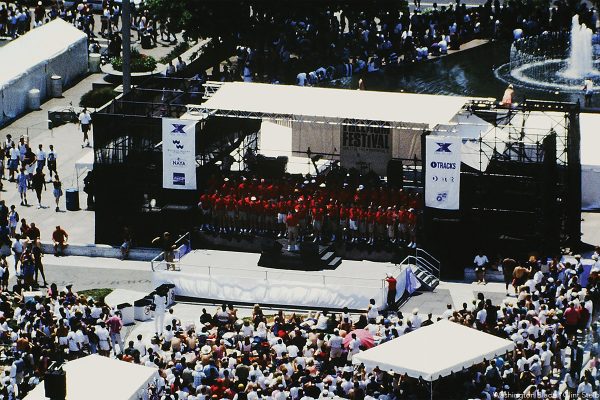
The magazine represents more than 50 years of hard work by countless reporters, editors, advertising sales reps, photographers, and other media professionals who have brought you the Washington Blade since 1969.
We hope you enjoy the magazine and keep it as a reminder of all the many ups and downs our local LGBTQ community has experienced over the past 50 years.
I hope you will consider supporting our vital mission by becoming a Blade member today. At a time when reliable, accurate LGBTQ news is more essential than ever, your contribution helps make it possible. With a monthly gift starting at just $7, you’ll ensure that the Blade remains a trusted, free resource for the community — now and for years to come. Click here to help fund LGBTQ journalism.
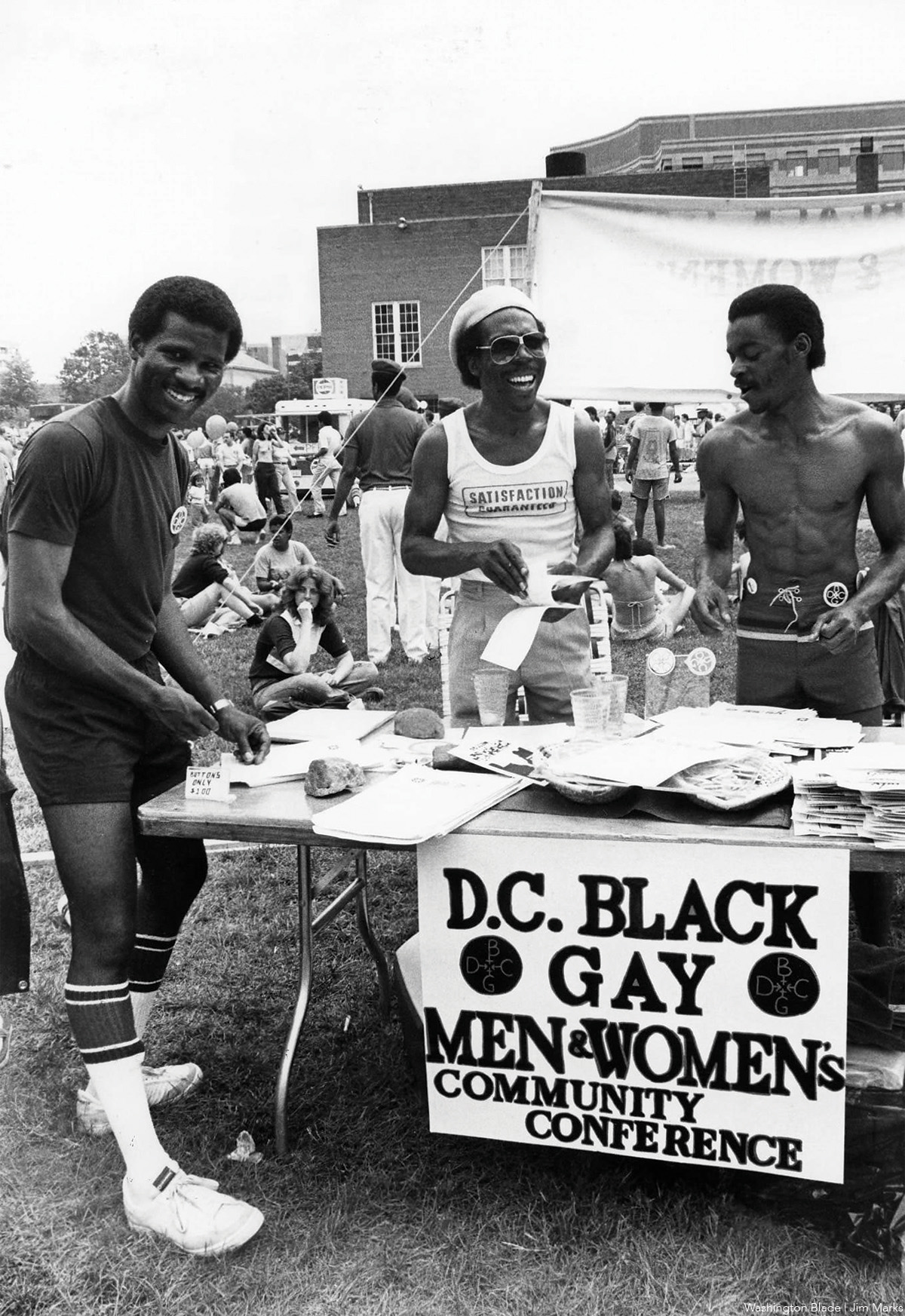
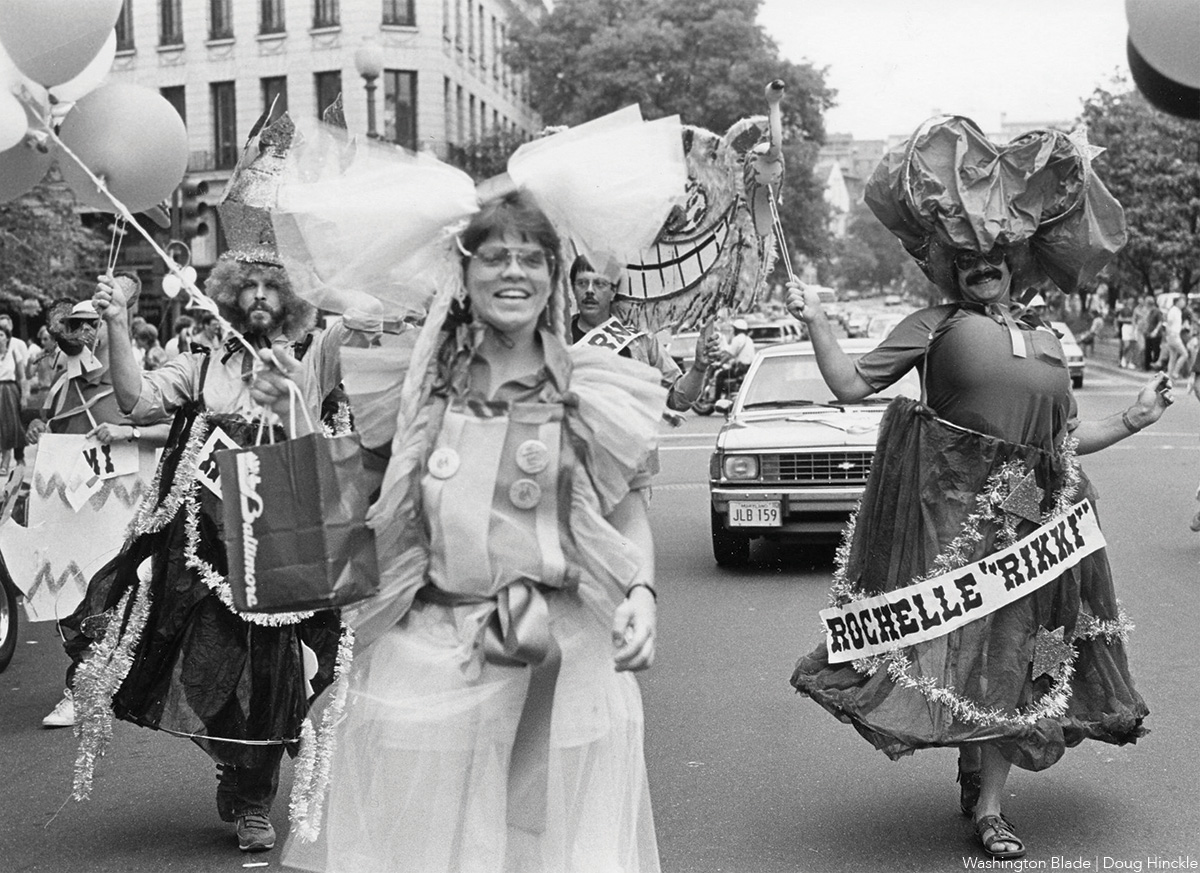
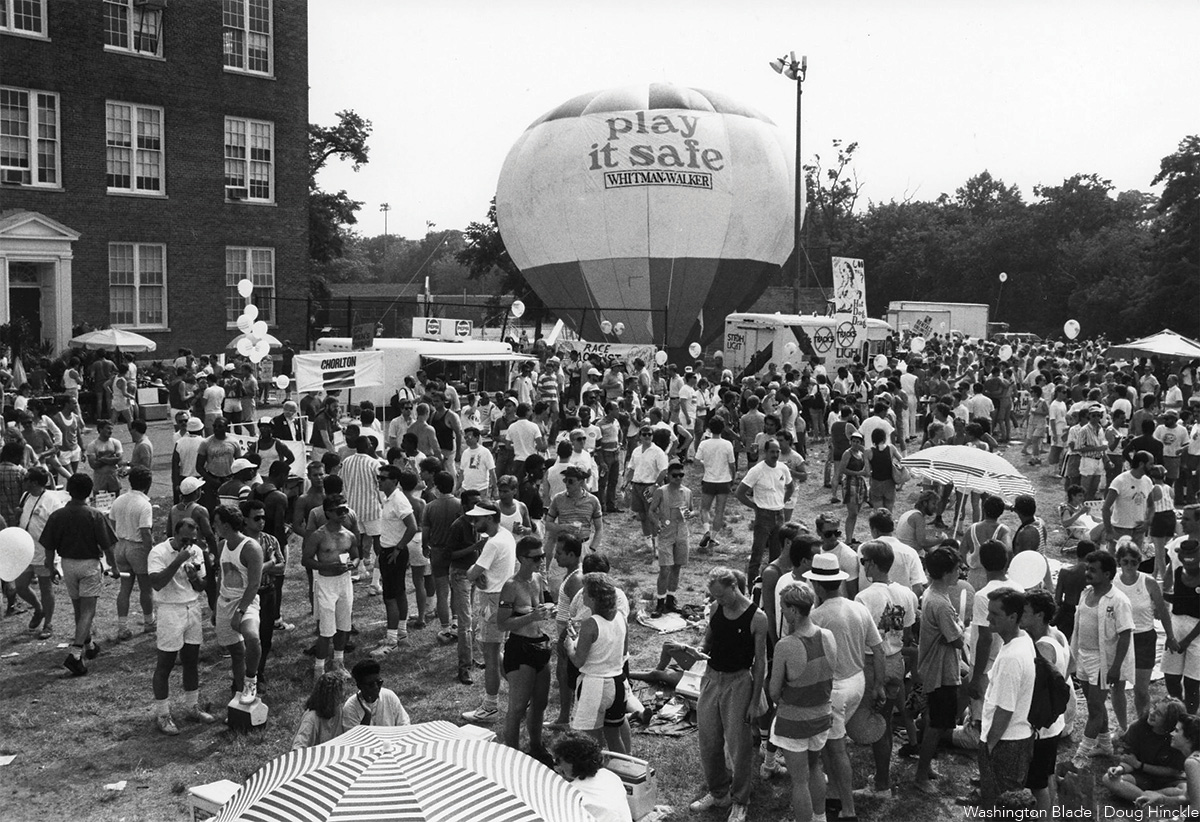
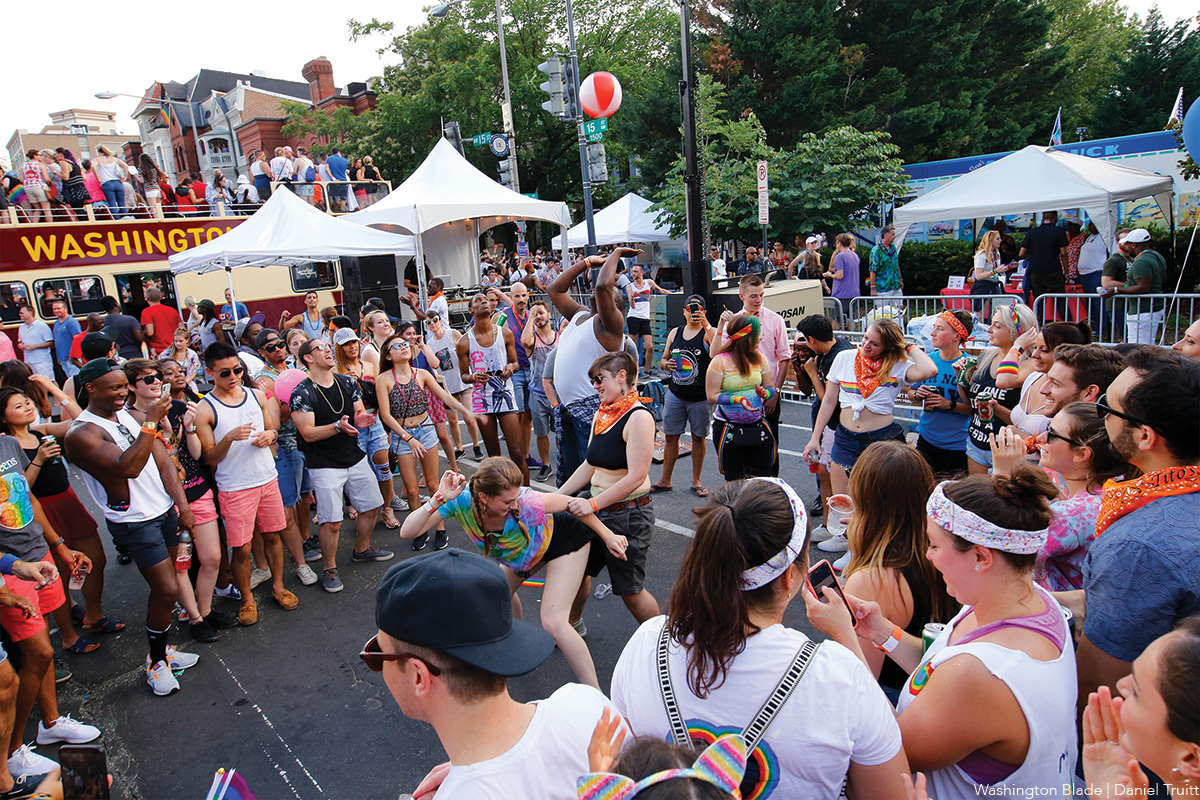
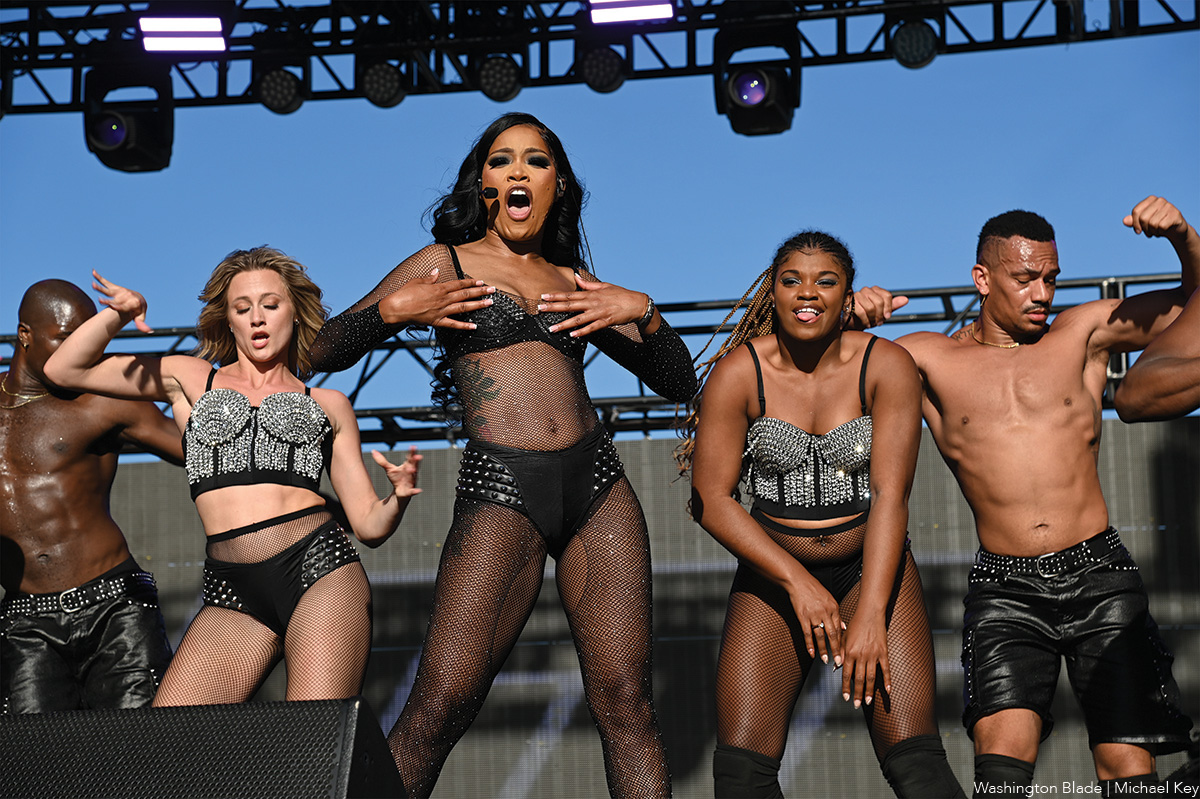
-

 U.S. Supreme Court4 days ago
U.S. Supreme Court4 days agoSupreme Court upholds ACA rule that makes PrEP, other preventative care free
-

 U.S. Supreme Court4 days ago
U.S. Supreme Court4 days agoSupreme Court rules parents must have option to opt children out of LGBTQ-specific lessons
-

 National5 days ago
National5 days agoEvan Wolfson on the 10-year legacy of marriage equality
-

 Congress5 days ago
Congress5 days agoSenate parliamentarian orders removal of gender-affirming care ban from GOP reconciliation bill

